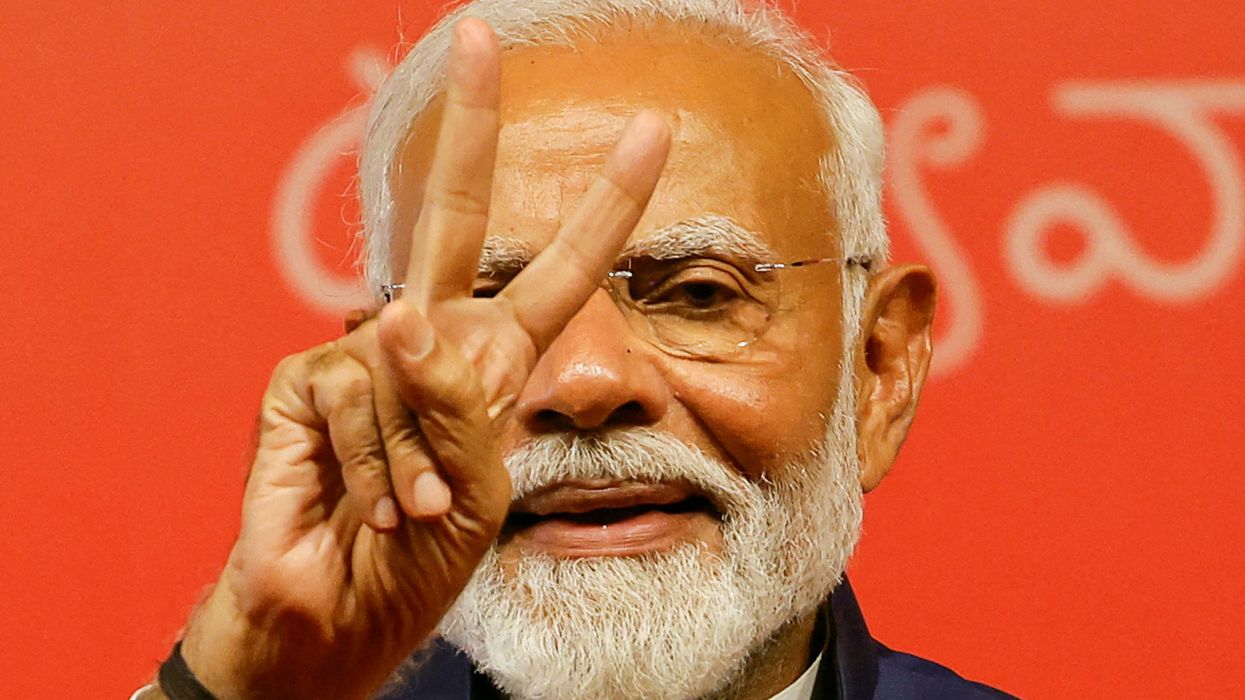A DAY after the humbling election outcome for his Bharatiya Janata Party (BJP), following a strong performance by the opposition 'INDIA' bloc, Indian prime minister Narendra Modi's 15 alliance partners met at his New Delhi residence and named him as their leader.
The BJP-led National Democratic Alliance (NDA) won 293 seats in the 543-member lower house of parliament, more than the simple majority of 272 seats needed to form a government. The INDIA alliance led by Rahul Gandhi's centrist Congress party won 230 seats, more than forecast.
Modi was set to meet president Droupadi Murmu on Friday (7) to present his claim to form a government and the swearing-in could take place over the weekend, an NDA leader said on condition of anonymity because he was not authorised to speak to the media.
Local media earlier reported that the swearing-in ceremony was scheduled for Saturday (8).
Separately, leaders of the INDIA alliance that comprises over two dozen parties also met at the residence of Congress president Mallikarjun Kharge in Delhi.
"The INDIA bloc will continue to fight against the fascist rule of the BJP, led by Modi," Kharge told reporters following the meeting. "We will take appropriate steps at the appropriate time to realise the people's desire not to be ruled by the BJP's government."
Modi's BJP won 240 seats on its own, trimming its 2019 tally by over 60 seats, mostly in rural areas, which investors say could impact land and labour reforms that they had expected would unlock value and growth.
The closer-than-expected election should increase the prospect of productive reforms, the country's chief economic adviser said on Wednesday.
The BJP lost heavily in two bellwether states, its northern stronghold of Uttar Pradesh, which has 80 seats, and the western state of Maharashtra, which sends 48 members to the decision-making lower house of parliament.
The Congress alone won 99 seats nationally, almost double the 52 it won in 2019 - a surprise jump that is expected to boost Gandhi's standing.
In the later stages of the election campaign Modi had sought to renew his appeal to India's Hindu-majority, accusing the opposition of favouring minority Muslims.
But without a majority of its own, some policies of his BJP, such as common personal laws for all religions, opposed by some Muslims, will likely be put on the back burner, as Modi's regional allies are seen more accommodating towards minorities.
Modi's own victory in his seat of Varanasi, located in Uttar Pradesh and considered one of the holiest cities for Hindus, was subdued, with his margin of victory down from nearly 500,000 votes in 2019 to a little more than 150,000.
While Modi faces a more complicated political environment at home, he won the plaudits of leaders around the world.
US president Joe Biden congratulated Modi on his coalition's victory, and the State Department said the United States hoped to work with the Hindu nationalist leader on a "free and open" Asia.
"The friendship between our nations is only growing," Biden wrote, while French president Emmanuel Macron congratulated his "dear friend".
Read Also: The best casino varieties people should give a go
China congratulated Modi and said it was "ready to work" with its neighbour, while the coalition's win was also applauded by Britain, the European Union, Japan and Russia.
Modi, 73, insisted on Tuesday (4) night that the election results were a victory that ensured he would continue his agenda.
"Our third term will be one of big decisions and the country will write a new chapter of development," Modi told a crowd of cheering supporters in the capital New Delhi after his win. "This is Modi's guarantee."
(Agencies)





